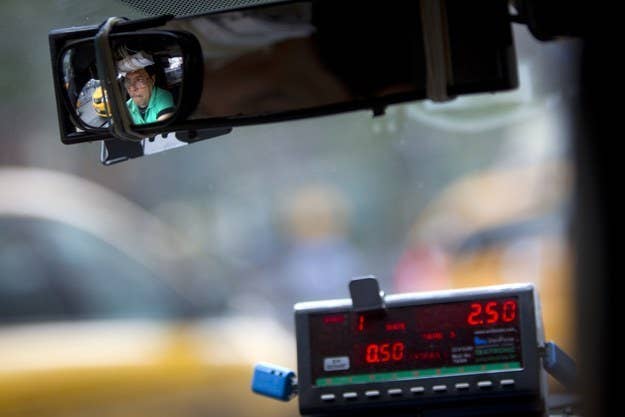
The TLC will be voting on a proposed ruling tomorrow intended to promote accountability among car service companies — including Lyft and Uber — that initially, among other things, calls for a mandate that would prohibit bases from dispatching drivers affiliated with another base. However, revisions made to that ruling today, if passed, would allow drivers to accept rides from multiple bases rather than working with one base exclusively. (An exception to that rule is if two bases have come to a formal agreement.)
"We had some concerns about Workers Comp coverage for drivers in instances where there weren't inter-base agreements in place," Allan Fromberg, TLC's deputy commissioner of public affairs, told BuzzFeed News over email. "But we researched it exhaustively and we are now satisfied that coverage would be in place even without the agreements, and so we withdrew that one component of the proposed rules. We also saw the withdrawal of that one component as being very consistent with drivers' status as independent contractors. The other components – requiring the standardization and routinization of trip data, and prohibiting cross-segment dispatch -- remain in place."
The revisions come just a few days after BuzzFeed News first reported that New York Attorney General Eric Schneiderman wrote a letter to the TLC urging them to reconsider the mandate that bases must come to an agreement in order for them to dispatch unaffiliated drivers. Citing the possibility of antitrust issues arising and the fear that the most well-capitalized company could monopolize the industry, Schneiderman urged the TLC to reject the proposed rule as written, entirely.
In response to the revision, Schneiderman released this statement:
"I applaud Commissioner Joshi and the Taxi and Limousine Commission for revising its proposed rules to promote competition and innovation in the for-hire vehicle industry By allowing for-hire drivers to accept dispatches from multiple bases, the TLC will increase driver efficiency, lower the costs of entry for new services, and encourage more competition in the taxi industry. I want to thank Commissioner Joshi for incorporating feedback on this proposal, and pushing to implement smart, forward-looking regulations."
The revision is a win for both Uber and Lyft, both of which argued against the one-base rule at the public hearing but for different reasons. Lyft, which only has 10 cars tied to its black car base, would be effectively regulated out of the car service industry in New York unless the company was able to convince drivers to transfer to its base. Uber, on the other hand, would lose 3,000 part-time drivers (by the company's estimation) that have begun driving for them since the company began dispatching drivers from other bases.
The Taxi and Limousine Commission voted unanimously this morning to pass the for-hire vehicle accountability rules including the mandate that car service companies submit trip logs and data to the TLC — a mandate that only Uber argued against during the hearing.
Josh Mohrer, who is being investigated by the company for allegations that he violated the company's privacy policy and did not attend the hearing today, argued at the initial public hearing that submitting trip data to the TLC would open up that information to FOIA requests and in turn could violate Uber users' privacy.
Lyft, on the other hand, told the TLC they had no problem with submitting its trip data. The trip data, however, would only include information about pick-up location, the data and time, and the dispatching and affiliated bases. No personal information about passengers will be included.
